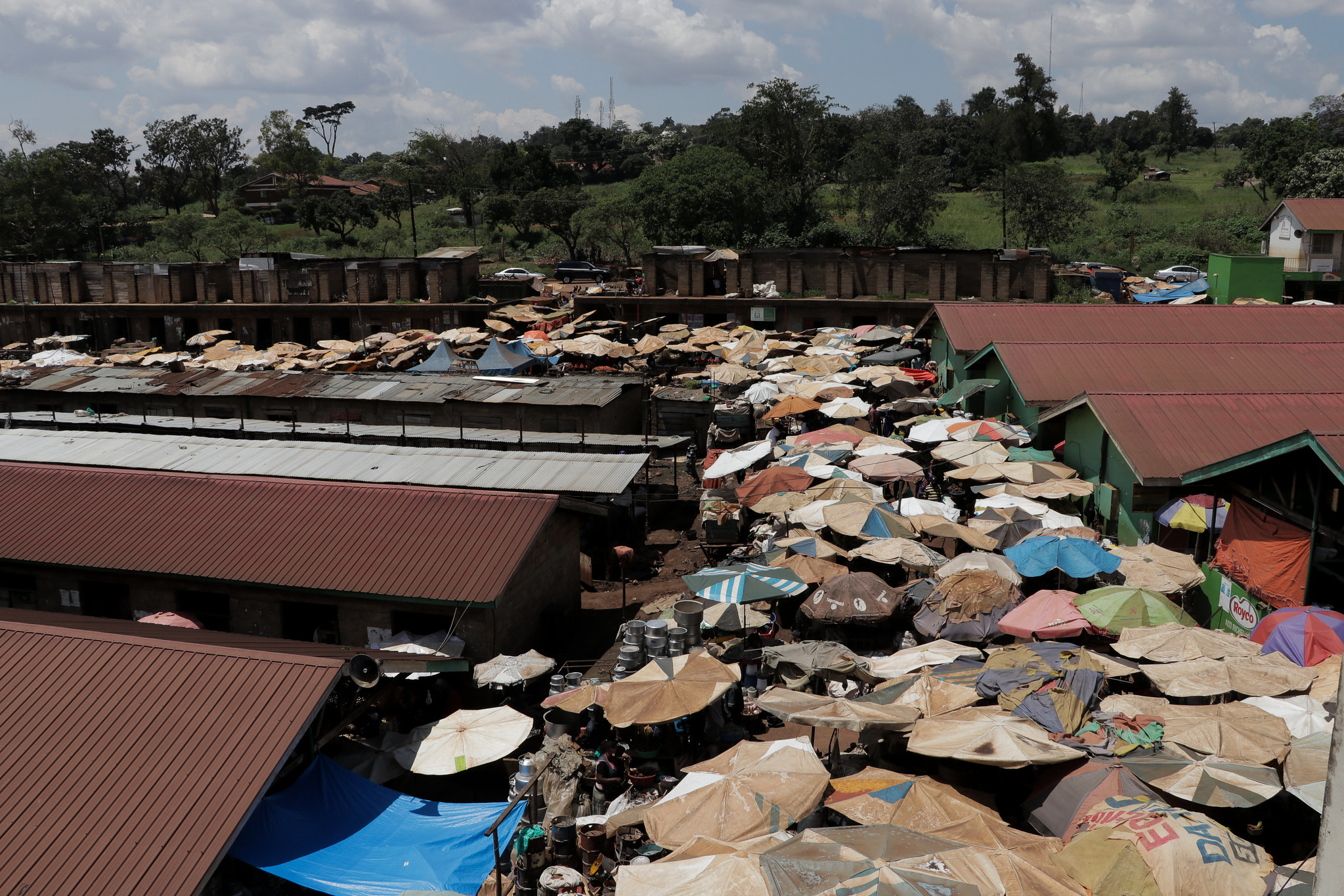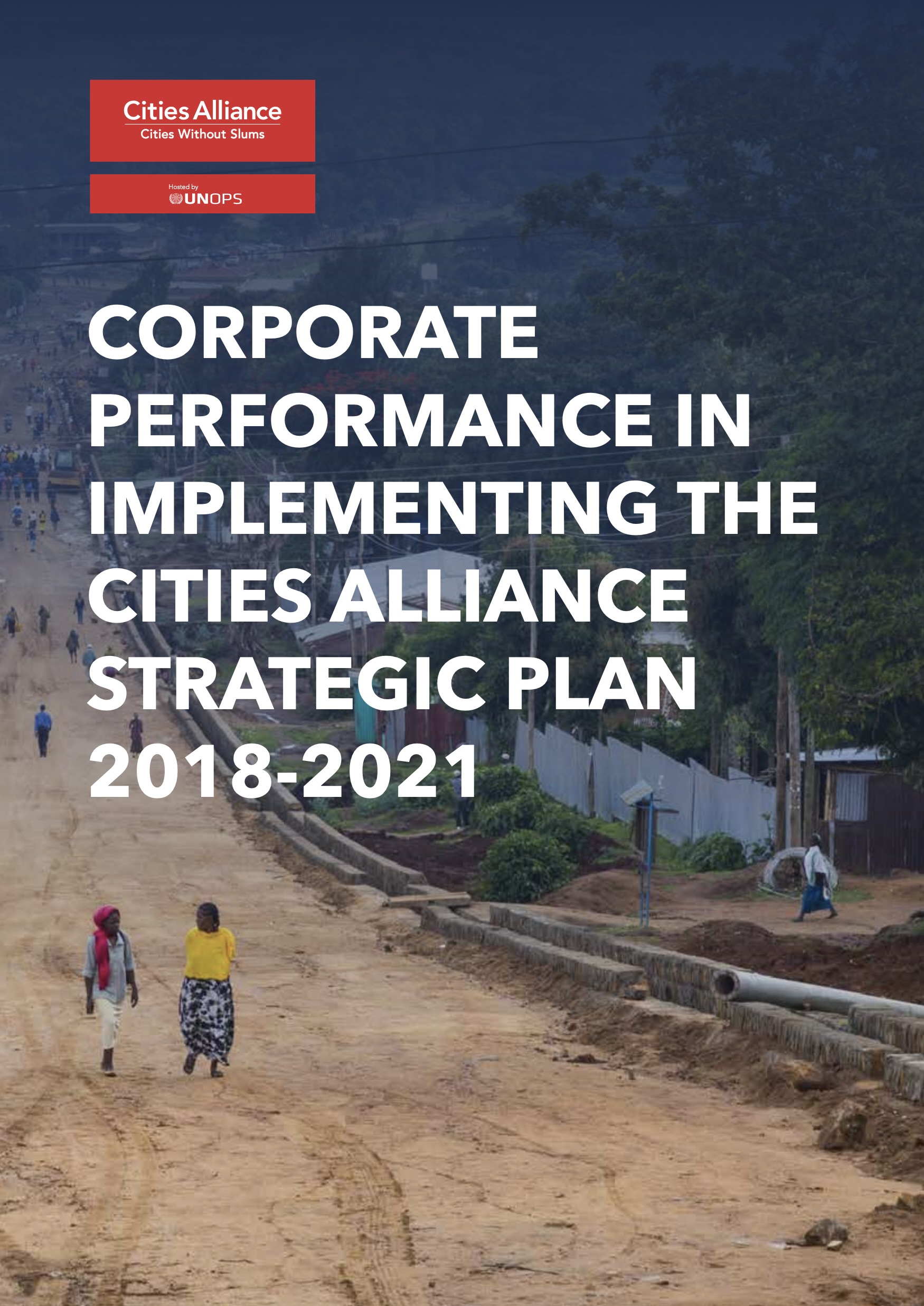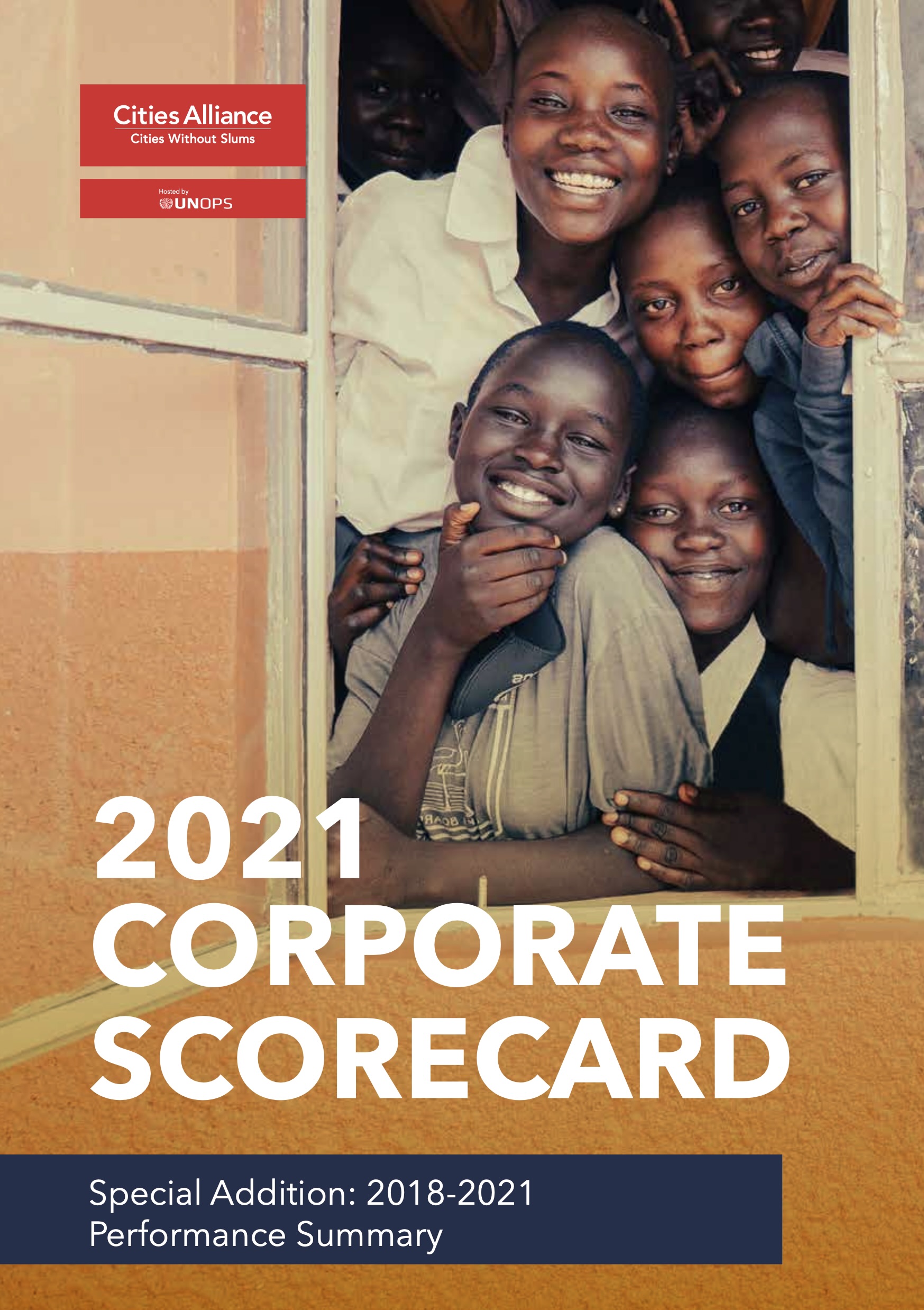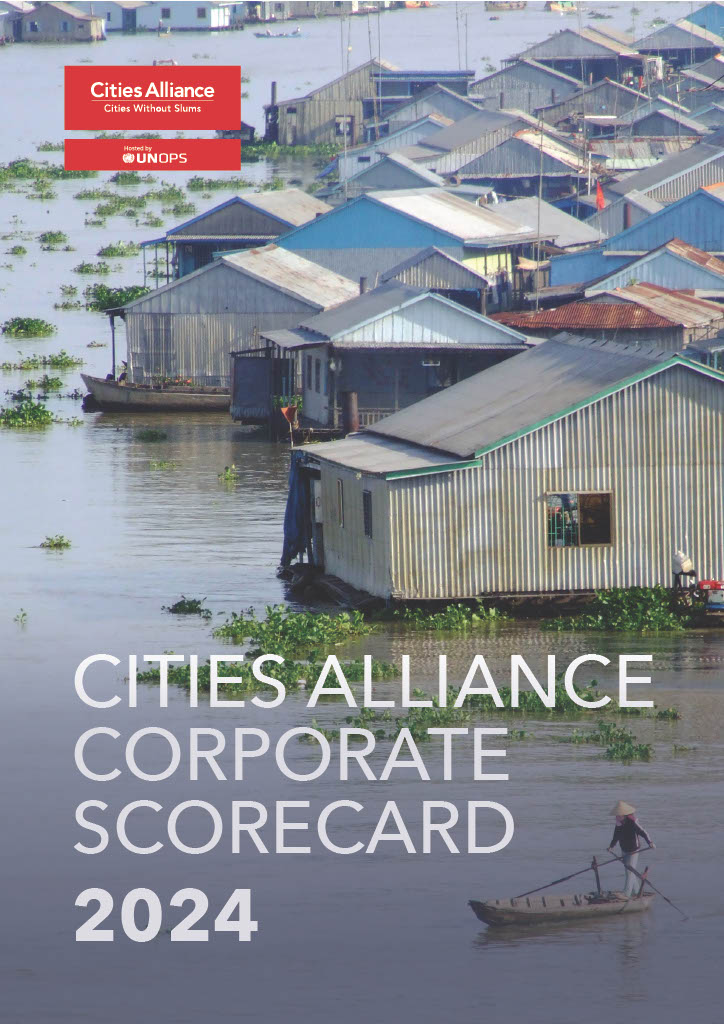- Who We Are
- How We Work
- Regional / Country Initiatives
- Legacy
- Core Themes
- Working Groups
- Portfolio & Results
- Newsroom
- Resources
Corporate Scorecard 2021

2021 marked the final year of the four-year period of executing the Cities Alliance Strategic Plan 2018‑2021 – Implementing the SDGs. As the final year of the strategic period, this special edition Scorecard includes a summary of corporate performance against the indicators and targets which were established for the Strategy in 2018.
The new Strategic Plan 2022-2025: Delivering for the Urban Poor, includes a set of Corporate Results Framework indicators to track strategic objectives in responding to the rising inequalities and fragilities impacting cities, urban informal settlements, and their residents.
Corporate Performance Assessment 2018 - 2021

Over the previous four-year strategic period, Cities Alliance achieved a substantial global presence, with operations in 63 cities across 30 countries, and with an annual direct reach of over 800,000 people by 2021.
The final independent evaluation of the Liberia Country Programme demonstrated its significant contributions to lasting transformational change in urban decision-making processes in Greater Monrovia, and direct contributions to improving SDG indicators within the informal settlements covered by the programme, including:
- 4% increase in households with access to safe drinking water services;
- 8% increase in households with access to potable water;
- 8.2% increase in households with improved sanitation services; and
- 51% increase in households with a planned form of solid waste disposal.
At the end of the Cities Alliance 2018-2021 Strategic Plan period, seven of the nine (78%) programmatic outcome targets (Tier III Corporate Indicators) were fully met, and six (67%) had significantly exceeded strategic targets. These results point to robust organisational performance and effectiveness in achieving intended results towards the SDGs:
- Towards national policy frameworks and influential dialogues to improve the inclusive management of urbanization, Cities Alliance delivered: 4 National Urban Policies and 13 influential urban dialogues.
- Towards improved inclusive governance, city-wide service delivery and increased resilience and sustainability, Cities Alliance delivered: 25 local Strategies and Plans; 130 urban institutions strengthened through engagement in capacity-building partnerships; 124 knowledge products produced and disseminated; and, an average of 4,275 individuals with strengthened capacities in urban development annually.
- Towards increased access to basic services and improved public space, Cities Alliance delivered: over 1 million (1,086,599) people gaining improved wellbeing, health and/or livelihoods as direct beneficiaries of Cities Alliance infrastructure projects. Additionally, Cities Alliance leveraged US$21 million in additional investments in cities.
- Towards enhanced citizen participation in governance, Cities Alliance delivered: 50 regularly functioning mechanisms to engage and empower communities of the urban poor in dialogue with local authorities and inclusive urban development, and 337 policy dialogues, awareness-raising campaigns and formal learning events.
The Cities Alliance Secretariat demonstrated strong operational performance and effectiveness, and improvement over the four-year period. Despite annual variations, which were in part due to the impact of the COVID-19 pandemic, 71% of operational performance indicators had improved on 2018 results by the end of the strategy.
Cities Alliance Performance in 2021
The 2021 Corporate Scorecard results demonstrate continued effectiveness in delivery and the attainment of targeted developmental results by Cities Alliance during the strategic transition year. Corporate performance against Programmatic Outcome (Tier III) indicators reflected consolidated delivery by mature programmes at the end of the strategic period. In 2021, Cities Alliance delivered:
- 693,429 new beneficiaries of infrastructure projects, including 205,424 individuals with improved access to basic services (through the construction of water kiosks, and repair of water points and reservoir rehabilitation), and 488,005 beneficiaries of improved public space (including through rehabilitated parks, women’s safe havens, and energy efficient public lighting systems).
- 14 Local strategies and plans to deliver effective and inclusive urban development completed.
- Over 5,700 individuals with strengthened capacities.
- 111 urban intuitions in institutional capacity strengthening partnerships with Cities Alliance.
- 14 new regularly functioning mechanisms for dialogue and inclusive urban governance were established.
- 269 dialogues, awareness-raising campaigns and formal learning events.
- 74 Knowledge Products produced and disseminated.
- A total of at least 824,672 individuals were directly reached through Cities Alliance programmes in 2021.
The volume of knowledge products, policy dialogues, awareness-raising campaigns and formal learning events increased significantly and performed well above yearly performance standards. Despite the operational challenges faced due to the ongoing Covid-19 pandemic, 3 of the 4 grant-making efficiency indicators improved on 2020 results.
The Scorecard

The 2021 Corporate Scorecard accompanies the Annual Report to provide a strategic overview of the organisation’s performance. It is Cities Alliance's main results management tool and provides an assessment of the achievement of development results, effectiveness in achieving those results, and the efficiency of our operations.
The Scorecard includes key performance indicators to measure and document progress across the various tiers of results, with baselines, milestones and targets.
For this edition, the targets were set in line with the Cities Alliance Strategy 2018-21. The indicators are organized into four tiers:
- Tier I Development Goals: overall development impact at the global level.
- Tier II Client Results: impact on the ability of cities to deliver improved services.
- Tier III Programmatic Results: outcomes generated by our programmes.
- Tier IV Organisational and Operational Performance: outputs delivered by the Secretariat in terms of the partnership, volume, efficiency and sustainability.


